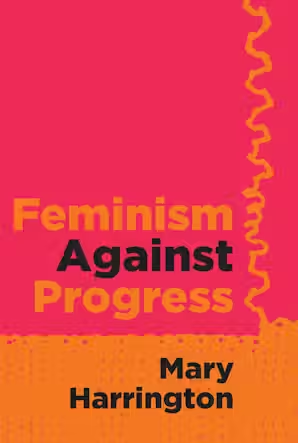
Mary Harrington
Reviewed by: John A. Hartley
Feminism Against Progress, by Mary Harrington. Regnery, 2024. Paperback, 256 pages, $17.99. Reviewed by OP pastor John A. Hartley.
Feminism Against Progress is not a Christian book, but it is a book for Christians because we live in the same world author Mary Harrington documents, a world increasingly under the spell of what she terms Progress Theology, Cyborg Theocracy, Bio-libertarianism, Big Porn, and Meat Lego Gnosticism—all of which could be street names in the metropolis of our dystopian present.
Yes, the long-feared dystopian future is a dystopian present. We’re now living in what we hoped would stay in our novels and films. “The dissociative self and its commodification of body parts” has become a baseline in politics, education, and social relations. With published data from varied research and disturbing vignettes from popular culture, Harrington is persuasive. We are further along in post-humanism than we thought.
There may remain enclaves of pre-dystopian sanity out there, but it would be unwise to not hear from those who have long lived at the epicenter of our dystopian present and have come out survivors, scarred and traumatized yet telling the truth for the benefit of all. Mary Harrington is such a one.
What does feminism have to do with Harrington’s project? Much. The modern liquefying of human nature gained its formidable traction among us in the name of freedom and progress. A feminism promoted by both men and women adopted the great maxim of all Progress Theology: liberation from the constraints of nature is the essence of freedom. The dystopian result is that women are now viewed as sterile by default, risk-free and sexually available, underwritten by corporate sponsors via the Pill and abortion tech.
Thankfully, Harrington demonstrates that nature will not yield to these assaults. Without saying it this way, Harrington shows that the works of the Creator will not be defeated by the will of the creature.
The book divides into three parts, but it really is two-thirds descriptive, one-third prescriptive. In the first two-thirds, Harrington makes the case that modern freedom fighters wish to delegitimize the idea that we have a nature. Only political mantras keep them numb to their self-inflicted wounds. Then, unexpectedly, Harrington shows how this war against nature is deeply embedded in consumer markets and profit-making. By these uncomfortable but necessary truths we learn it is too simplistic to shout, “Feminism is at fault!” Many technological and cultural shifts have brought us to our dystopian present.
In the last third of the book, Harrington does her best to prescribe actionable ideas to renew the world and turn on some lights. The final chapter titles convey her proposals well: “Abolish Big Romance”—return to marriage and to marriages with low expectations, not concerning fidelity, but concerning romance and excitement. “Let Men Be”—recover single sex spaces in our institutions and common culture. “Rewilding Sex”—return sex to what it used to be, consequential and risky.
It is in this final prescriptive section that the Christian reader becomes most hungry for the gospel. There is nothing on offer here from the age to come. Hope in God’s power and mercy is absent. What man must do looms large, always a depressing weight. If the Christian reader is not careful, he may put this important book down and think that the concerns of the present age are the great concerns that should most concern him. It is, of course, foolish to have no concern for these things. We must love our neighbors. But let us love God first and foremost. Let us cry out to God for mercy as we gaze on these desolations. The power of God, even in our dystopian present, is still the gospel of Jesus Christ.
June 01, 2025
Anxiety: Finding the Better Story
May 25, 2025
April 27, 2025
The Devoted Mind: Seeking God’s Face in a World of Distraction
April 20, 2025
April 13, 2025
Suffering: God’s Purpose in Our Pain
April 06, 2025
Sunday Matters: 52 Devotionals to Prepare Your Heart for Church
March 30, 2025
© 2025 The Orthodox Presbyterian Church